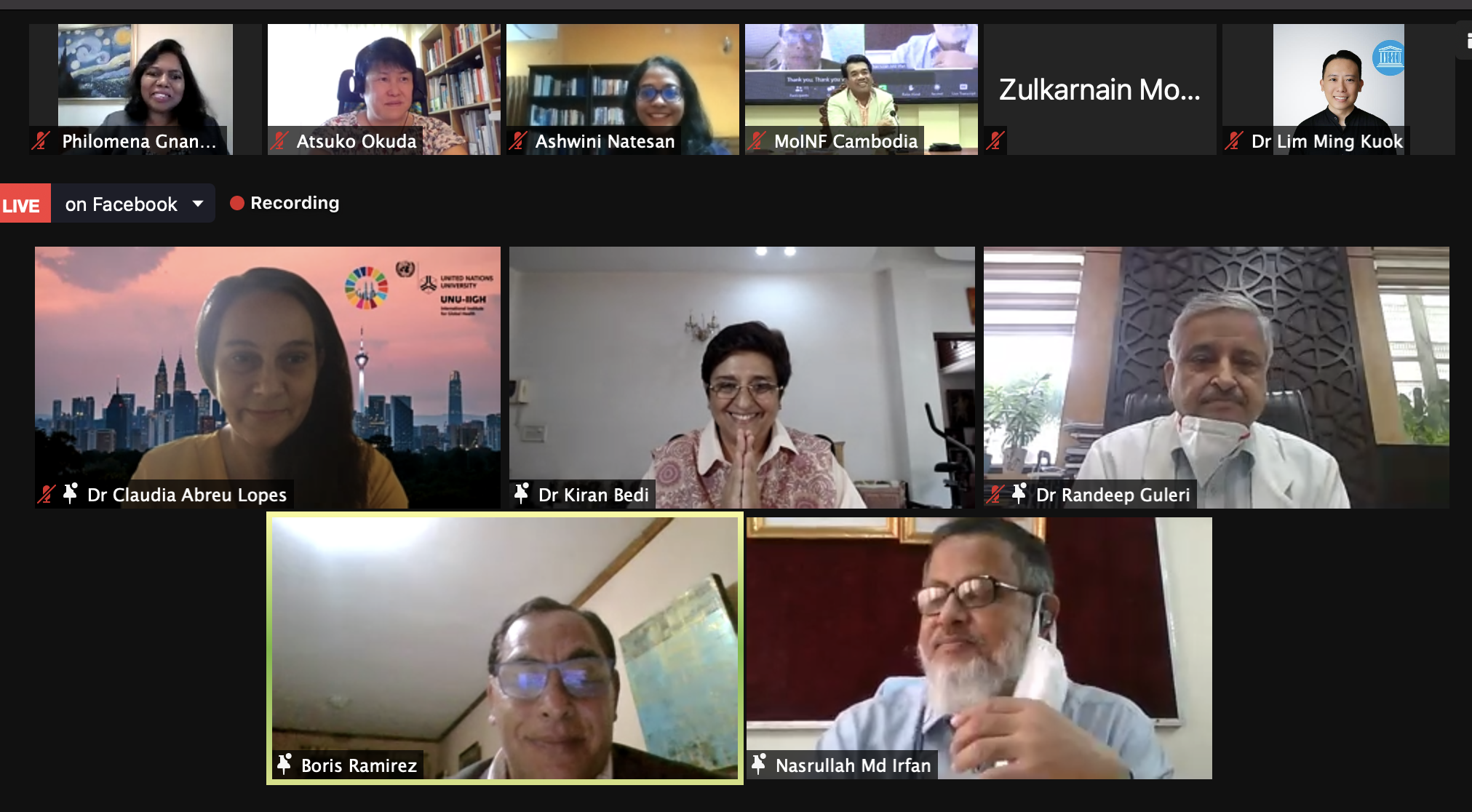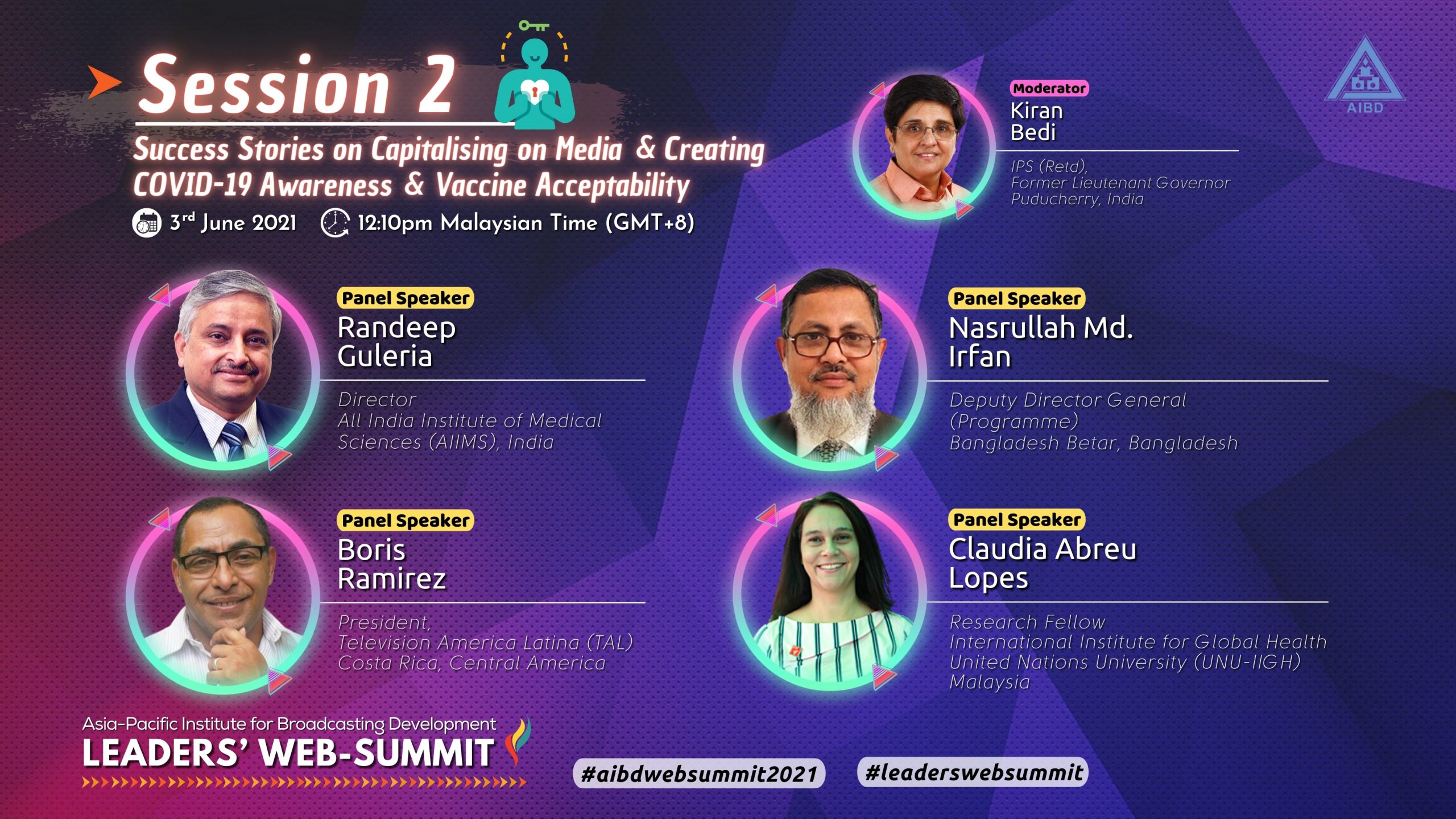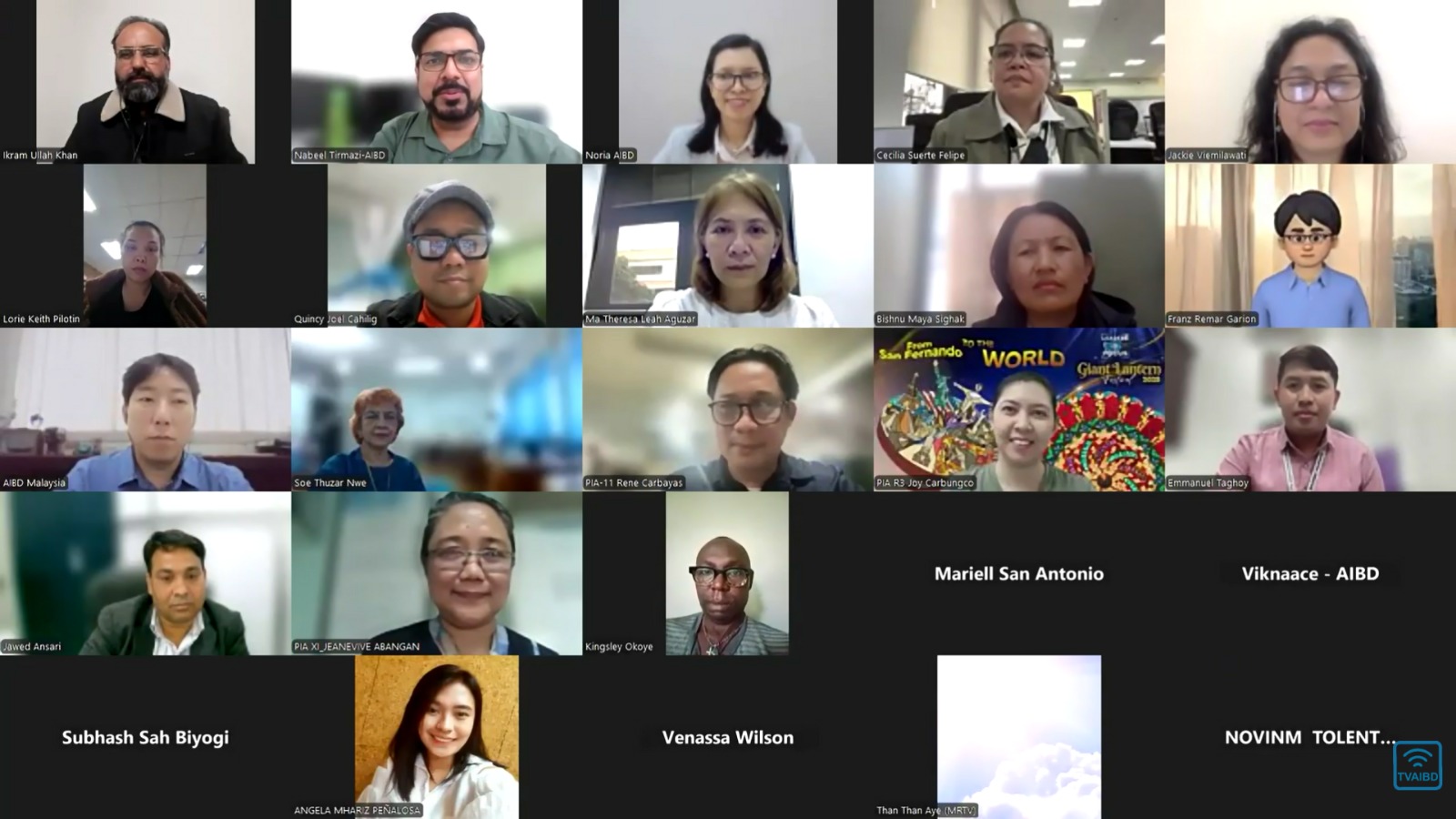
Capitalising on media & creating COVID-19 awareness & vaccine acceptability

The “Success story on capitalising on media & creating COVID-19 awareness & vaccine acceptability” started off the second day of the Leader’s’ Web Summit on Redefining the Role of Media in the New Norm on 3rd June 2021.
It began with the Director, All India Institute of Medical Sciences (AIIMS), New Delhi, Dr Randeep Guleria sharing his presentation on the topic “Role of Media and Digital Space in COVID-19 Pandemic”. He said the Government of India has been actively taking various steps to contain the pandemic since the first case of COVID-19 was detected in India on 30th of January 2020.
Being the Director of a premier teaching and research medical Institute, Dr Randeep took upon an important role in educating the medical professionals including doctors within the country and outside to deal with the new virus and the pathologies it caused in those patients with comorbidities. Besides spearheading the national medical efforts against the pandemic which connected medical and media professionals, (AIIMS) took the lead in media outreach with interviews, press releases, videos by medical faculty of the Institute.
He commended the media for an excellent job in providing Information, Education and Communication (IEC). Dr Guleria stressed on collaboration between media and medical professionals is required to contain the pandemic. Medical consultation by the public via media may become the norm even after the pandemic is over at least for the most common medical problems in the society.
Continuing in the series, Mr Nasrullah Md Irfan, Deputy Director General (Programme), Bangladesh Betar spoke about the Role of Bangladesh Betar in COVID-19 situation. Though the Government in Bangladesh acted quickly as soon as the first case of COVID-19 in Bangladesh was detected on the 8th of March 2020, the virus was quicker and a total of about 0.8 million were infected and more than 12,600 have since died.
As public broadcaster, Bangladesh Betar (BB) have to respond to the public on the information needed urgently not only using all programming genres via broadcast, but also use all social media platforms available. BB reaches out to people with its 14 regional Medium Wave and FM Frequencies along with their respective website and apps through the social media platforms with doctors providing the main support for correct and timely information.
President of Television America Latina (TAL) Costa Rica, Central America, Mr Boris Ramirez shared the session with the topic – Media New Opportunities: Inoculate people with the proper information. He began his presentation with the thought that this pandemic is a new opportunity for the media to inoculate people with proper information. Keeping the issues of national sovereignty, the union of public and cultural channels of Latin America created a window to the world by collaborating and sharing content.
He concluded by re-iterating that the pandemic has changed the world, how we see the world, the way we work and interact with others and it provides an opportunity for the media to collaborate across national borders. The primary role of media while defending freedom of expression and providing for the safety of journalists is the assurance of truthful information. Providing access to technology is a crucial factor in assuring digital inclusion as well as for access to information.
Research Fellow, International Institute for Global Health, United Nations University (UNU-IIGH) Malaysia, Dr Claudia Abreu Lopes spoke on Vaccine Acceptability among Malaysian youths with special reference to debunking myths using U-Report chatbot.
She said that vaccine hesitancy is a continuum between full acceptance and outright refusal of all vaccines. The hesitancy is an interplay between the confidence about the vaccine, the convenience in vaccinating and the complacency that people may feel. Large variations are observed between countries in terms of the rollout of vaccination for COVID-19. She said that it is primarily due to the availability of vaccines, but hesitancy may become a stumbling block in achieving full coverage.
Screen shot







